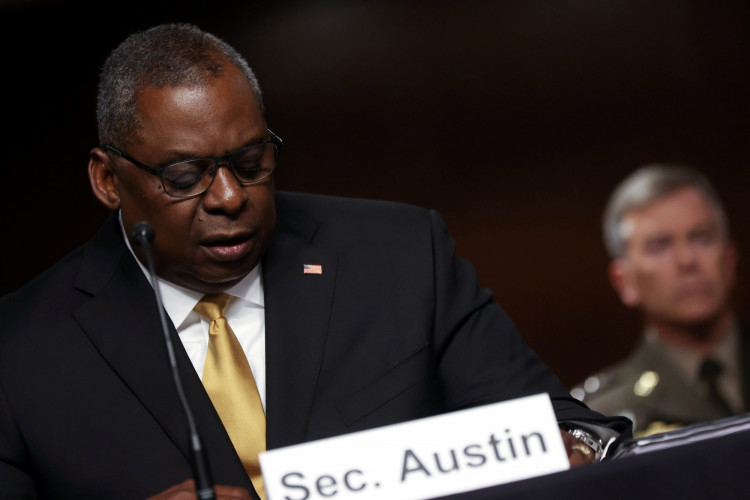U.S. Secretary of Defense Lloyd Austin has announced a departmentwide effort aimed at more effectively addressing China as the U.S. military's "pacing challenge."
Austin warned Beijing's "aggressive behavior" in the Indo-Pacific may lead to a crisis.
During a Congressional hearing on the Pentagon's annual budget, he underlined the need of having a direct channel of contact between the military and government authorities, in response to questions from members of the Senate Armed Services Committee.
"As we look at some of the aggressive behavior that we have witnessed from China in the Indo-Pacific, I'm concerned about something that could happen that could spark a crisis," Austin said Thursday.
"We need the ability to be able to talk with our allies and partners and also with our adversaries or potential adversaries. So, I think there needs to be a direct line of communication between the military and also between government officials as well," he added.
While some of the Pentagon's initiatives will remain classified, defense officials told reporters that the program will establish new organizational structures to better prioritize rivalry with China and ensure the Indo-Pacific region's concerns are given the attention they deserve.
The objectives are based on the Pentagon's China Task Force, which was formed in February to examine the department's China policies and identify top priorities.
The committee analyzed thousands of pages of documents, interviewed current and past defense officials, and consulted other government departments along with Congress.
Austin told lawmakers at his confirmation hearing in January that China is an "ascending power" and "the most concerning competitor we're facing."
China's alleged industrial espionage, theft of biomedical data, and potential manipulation of technology, such as 5G cellular networks, have long been a source of concern for U.S. officials.
The chairperson of the Joint Chiefs of Staff, General Mark Milley, stated that China is the No. 1 military threat to the U.S.
Russia is a considerable great power competitor as well, he noted.






